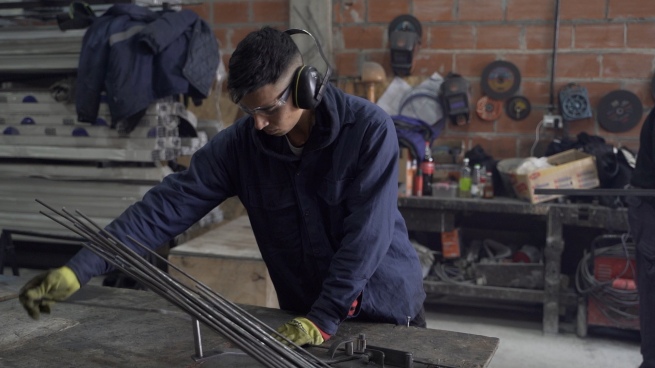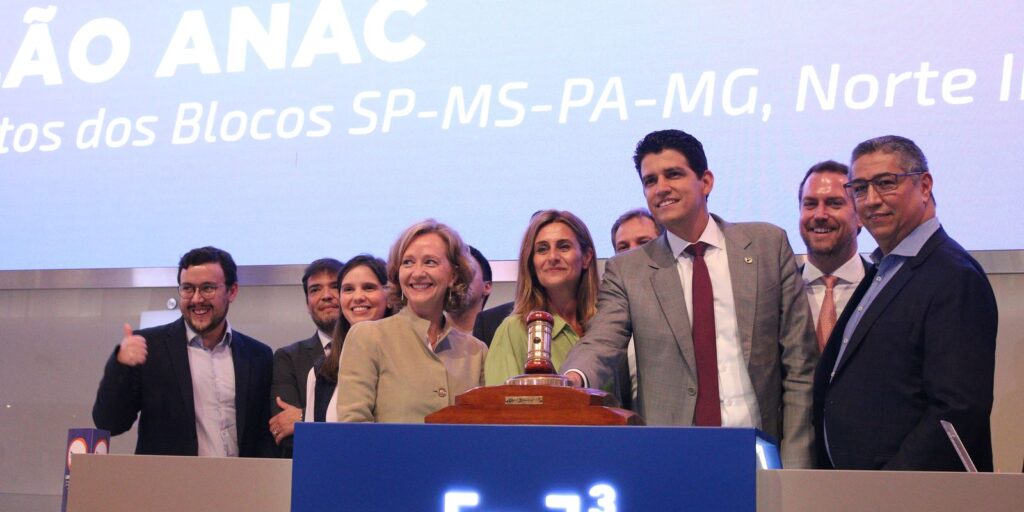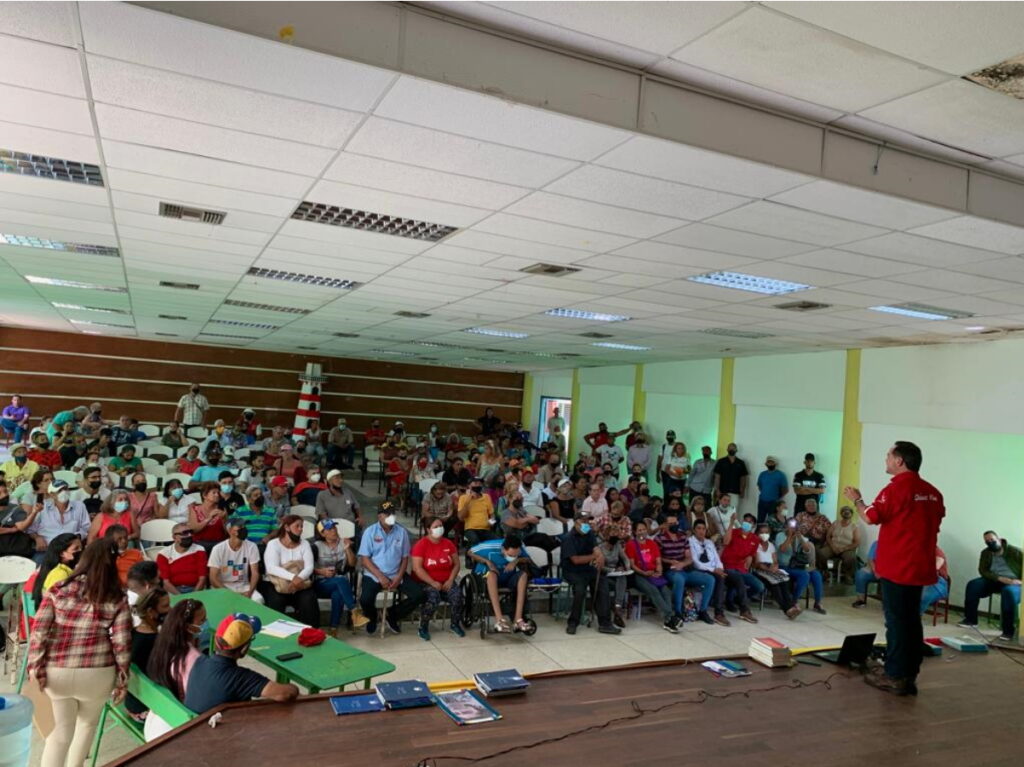Massa highlighted the level of unemployment and production and pointed to the fiscal order and the trade surplus
WATCH VIDEO
The Minister of Economy, Sergio Massa, assured this Thursday that “without macroeconomic stability there is no social peace, but without social peace there is no macroeconomic stability” and added that “the tensions are reflected in the decisions that the State and the private sector must take to time to invest.
This was expressed when he spoke at the closing of the meeting of the Council of the Americas that takes place in Buenos Aires, where he considered that macroeconomic stability “is a joint effort between the State, the rulers, but also with the economic and social actors of the Argentina”.
In this context, he argued that “The (social) tensions are reflected in the decisions that the State and the private sector must take when investing”.
In his speech, Massa highlighted the levels of consumption and production in the country, and announced that the unemployment rate fell to 6.7%while highlighting the goal of achieving fiscal order and sustaining the trade surplus for the remainder of the year.
“In the next few hours, a drop in unemployment will be known to 6.7%, in line with the numbers in different regions and provinces, which show a growth of 5% with unexpected numbers in terms of formal employment”Massa remarked.
Also, he highlighted that there are “levels of consumption in some regions of the country and of production, and an increase in installed capacity that reach levels that two years ago, in the midst of the pandemic, we did not imagine”.
For Massa, the main objectives of the economic program consist of achieving “fiscal order, with an orderly State fulfilling its goals” and “building a trade surplus.”
In any case, the minister admitted that are still in debt when it comes to income and poverty levels: “Income fell more than 23 points in the last six years, therefore we have to work to improve it, as well as stronger policies in the fight against poverty and indigence.”
He also stressed that “we directed the work and dialogue with the agro-industrial sector” and that “yesterday and today the cereal companies began to subscribe operations via node to advance everything that is pre-financing of exports.”
“We are also looking for an agreement of technical work with the technicians of the Liaison Desk to advance in a faster liquidation mechanismthat allows us as a nation state to take full advantage of the power and wealth generation that the Argentine agro-industrial sector has, which is fabulous,” he added.
On the other hand, he referred to the new subsidy distribution system and said that in the previous one “the injustice of those who consumed the most received the most subsidy and threatened care, the saving of energy resources” as well as against the distribution of income.
In that sense, thanked “the four million Argentines who renounced subsidies” because “they showed the will to accompany the effort of the State in carrying out a saving of resources that results, if we take care of electricity, gas, water, in savings for the State and also in savings for the citizen”.

Transform plans into employment
Massa announced that this Friday the decree by which the program to transform social plans into formal employment will be launched, with the aim of incorporating more than 200,000 beneficiaries into the labor market next year.
“We are publishing tomorrow (Friday) a decree that allows us to start transforming social programs into employment plans; its main characteristic is that it enables whoever is a beneficiary of a social program to access the labor market,” said the minister in the Council of the Americas.
He pointed out that “The employer has contributions and contributions discounted, only pays social work, ART and union” and “the State continues to pay the base of the program for one year and the employer completes the salary of the agreement.”
In this context, he stated that “we hope that over the next year we will be able to incorporate more than 200 thousand beneficiaries of social programs into the labor marketalso understanding that the levels of unemployment that we have today find a ceiling in the capacity to absorb labor due to lack of supply”.
“In the construction sector, in agriculture, especially in regional economies, in the tobacco sector and in many other places, we find ourselves with the difficulty that the fear of losing the plan leads them to not be part of the labor force with rights. social benefits that being a formal worker represents,” he concluded.
Financing
For more than half an hour, Massa specified a series of measures that will be promoted in the short term and announced an agreement to be signed this Friday for US$750 million with the Development Bank of Latin America (CAF)which will be used for “investments and a part will go to integrate the free availability of reserves.”
Along these lines, he also announced that progress is being made in obtaining agreements with banks in Asia, Europe and the United States to “repurchase debt and strengthen reserves”.
In terms of financing for productive development, he stressed that in the “next few days” two large lines of credit will be announced: one centrally destined to increase the “installed capacity of factories by $400,000 million, and another by $130,000 million for SMEs “.

The head of the Treasury Palace was firm regarding the policies that the Government will establish towards foreign trade companies and stated that all the dollars needed for production and health will be “guaranteed”, while they will continue to denounce those who speculate with import irregularities.
“We are going to fight to give (currency) to those who produce, or need supplies for health services, but we will be tough on the typical riots, denouncing them for money laundering in the United States,” he emphasized.
Regarding the challenges that arise for improve competitiveness He mentioned four vectors: energy sector, agro-industrial complex, rare minerals and knowledge economy.
In this scenario, after weighing the potential of each of the sectors, he estimated that the knowledge economy will demand “350,000 programmers” in the region for the next five years, and to generate them “we only compete with Colombia on a human level.”
Once again, he reiterated the need to agree on “basic consensus” with all sectors -including the political opposition- for the development of Argentina, while President Alberto Fernández formalizes the call for “an economic and social agreement.”
“Dialoguing with the other does not mean conceding, but thinking together, because Argentina is much more important than our ambitions,” he concluded.
















